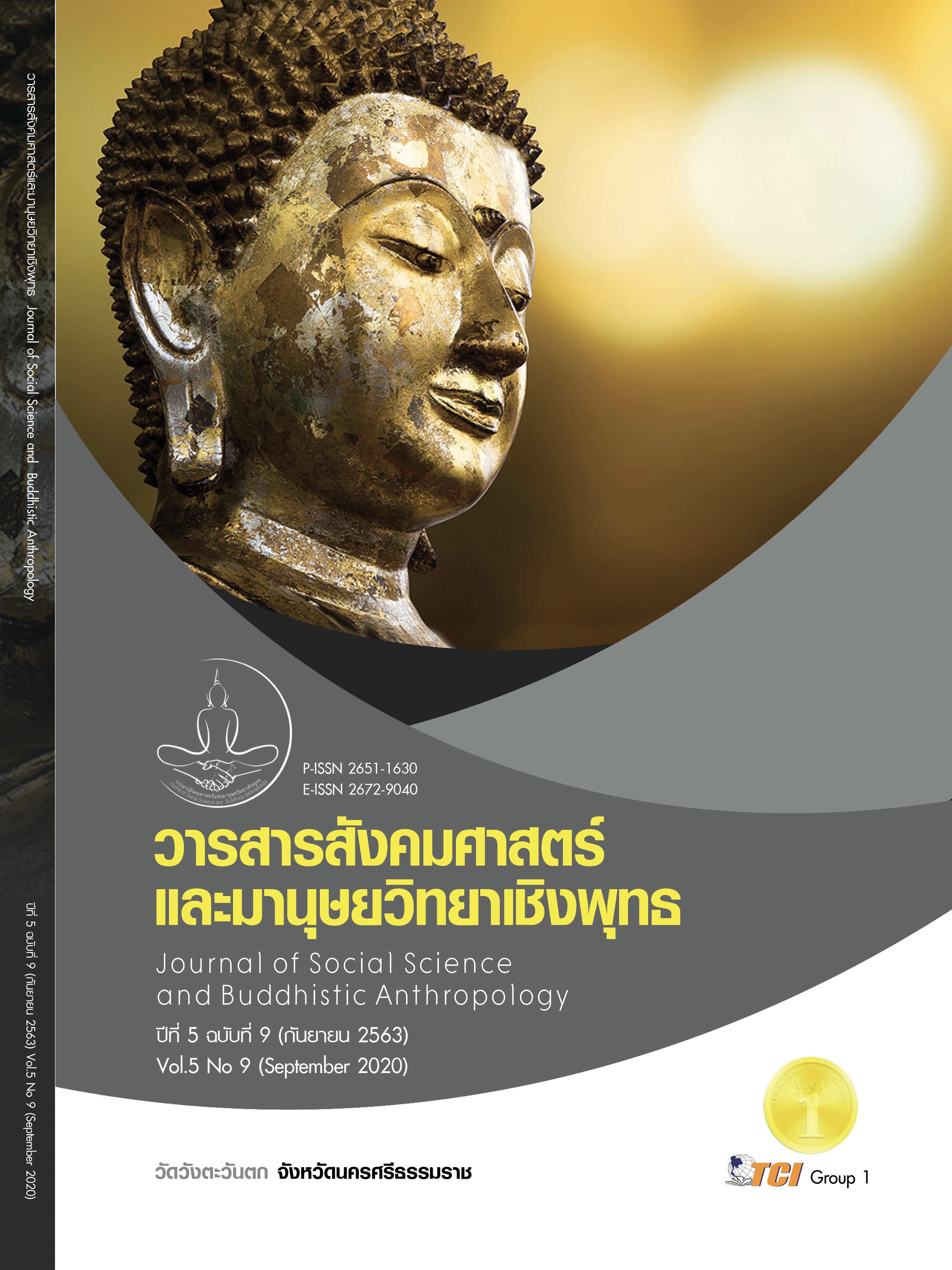THE ADMINISTRATION STRATEGIES FOR PRIMARY SCHOOLS IN THE NORTH EASTEARN TOWARD WORLD-CLASS STANDARD
Keywords:
The Administration, Strategies, Primary Schools in The North Eastern, World - Class StandardAbstract
The objectives of this research are to study needs, strategy development and management strategy assessment of elementary schools in the Northeastern region for meeting international standards. The research was conducted by using a mixed methodology that was divided into three phases: Phase 1: Needs study - The sample consisted of 385 school administrators who were selected by simple random sampling. The research instrument was a 5 - point rating scale questionnaire. The data were analyzed by finding out frequency, percentage, mean and standard deviation. The needs were fount out by using. Phase 2: Strategy development - The researcher used the Delphi technique with 17 experts. Phase 3: Strategy assessment - The researcher determined the sample size with the same method as setting the sample and conducted a random sample as same as Phase 1. The research instrument used in Phrase 3 was a questionnaire surveying opinions on management strategy assessment of elementary schools in Northeastern region for meeting international standards. The questionnaire surveyed two aspects, including suitability and feasibility in practices, with following tools: Part 1 - General information of respondents (represented in the form of checklist) and Part 2 - The management strategy assessment of elementary schools in Northeastern region for meeting international standards. The questionnaire surveyed two aspects, including suitability and feasibility in practices. The research instrument was a 5-point rating scale questionnaire. The research results indicated that the needs for management of elementary schools in the Northeastern region for meeting international standards were at the highest level in the aspect of workforce focus, followed by measurement, analysis, knowledge management and process management, respectively. 2) The management strategy of elementary schools for meeting international standards consisted of 9 strategies, including 1) leadership strategy 2) strategic planning strategy 3) learner and stakeholder focus strategy 4) measurement, analysis and knowledge management strategies 5) focus strategy 6) process management strategy 7) key operations strategy 8) innovation and information strategy and 9) learner quality strategy. 3) The results of strategy assessment of elementary schools in the Northeastern region for meeting international standards had suitability and feasibility at a high level in all strategies.
References
เกรียงศักดิ์ เจริญวงศ์ศักดิ์. (2550). ภาพอนาคตและคุณลักษณะของคนไทยที่พึงประสงค์. กรุงเทพมหานคร: สำนักงานคณะกรรมการการศึกษาแห่งชาติ.
จีระ งอกศิลป์. (2550). คู่มือเตรียมสอบผู้บริหารสถานศึกษา สังกัดสำนักงาน คณะกรรมการการศึกษาขั้นพื้นฐาน ชุดที่ 3. กรุงเทพมหานคร: โอเดียนสโตร์.
ทศพล เกียรติเจริญผล และคณะ. (2553). กลยุทธ์เพื่อเพิ่มผลผลิตเชิงวิศวกรรม (Strategy for Productivity Improvement). กรุงเทพมหานคร: โรงพิมพ์แดเน็กซ์อินเตอร์คอร์ปอเรชั่นจำกัด.
บุญชม ศรีสะอาด. (2545). การวิจัยเบื้องต้น. (พิมพ์ครั้งที่ 7). กรงเทพมหานคร: สุวีริยาสาส์น.
พรรณี เหมะสถล และคณะ. (2551). การประเมินผลการพัฒนาโรงเรียนสู่ความเป็นเลิศ แบบก้าวกระโดดด้วยการเทียบเคียงตามแนวรางวัลคุณภาพ มหาวิทยาลัยราชภัฏนครสวรรค์. ใน รายงานการวิจัย. มหาวิทยาลัยราชภัฏนครสวรรค์.
วิลัยพรณ์ เสรีวัฒน์. (2555). การประเมินเชิงระบบโครงการโรงเรียนมาตรฐานสากล. ใน ดุษฎีนิพนธ์ปรัชญาดุษฎีบัณฑิต สาขาวิชาการบริหารการศึกษา. มหาวิทยาลัยขอนแก่น.
สํานักงานคณะกรรมการการศึกษาขั้นพื้นฐาน. (2553). แนวทางการบริหารและการจัดการศึกษาในเขตพื้นที่การศึกษาและสถานศึกษา. กรุงเทพมหานคร: สํานักงานปฏิรูปการศึกษา.
สํานักงานสภาการศึกษา. (2552). 15 รูปแบบการบริหารโรงเรียนของผู้บริหารสถานศึกษาต้นแบบรุ่น 1 ปี 2544. กรุงเทพมหานคร: 21 เซ็นจูรี.
อภิรักษ์ คงทา. (2556). การบริหารโรงเรียน. กรุงเทพมหานคร: โอเดียนสโตร์.
อรุณ รักธรรม. (2551). “ทฤษฎีองค์การ” ประมวลชุดวิชาทฤษฎีและแนวปฏิบัติในการบริหารการศึกษา. นนทบุรี : มหาวิทยาลัยสุโขทัยธรรมาธิราช.
Asia Society. (2001). Going Global: Preparing Our Students for an Interconnected World (2008). Retrieved July 9 , 2012, from https://asiasociety.org/files/ Going%20Global%20Educator%20Guide.pdf
Kilmer, V. (1999). The essence of total quality management. New York: Prentice-hall.
Kotter, J. P. (1996). Beyond total quality management: Toward to emerging paradigm. New York: McGraw-Hill.
Krejcie, R. V. & Morgan, D. W. (1970). Determining Sample Size for Research Activities. Educational and Psychological Measurement, 30(3), .607-610.
Newby, E. F. (1998). Beyond total quality management: Toward to emerging paradigm. New York: McGraw-Hill.









